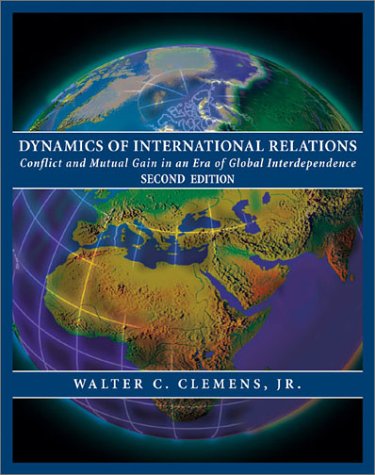
Book
|
Dynamics of international relations : conflict and mutual gain in an era of global interdependence
Copies
1 Total copies, 1 Copies are in,
0 Copies are out.
Title
Dynamics of international relations : conflict and mutual gain in an era of global interdependence
Call No
327.101 CLE-D
Edition
Second edition.
Digital Link
Authors
Subjects
Language
English
Published
Lanham, MD : Rowman & Littlefield Publishers, c2004.
Publication Desc
xxv, 646 pages : illustrations, maps ;
ISBN
0742528219 (paper : alk. paper)
Dimensions
24 cm.










